Potential Fruit and Leaf Injury
This section does not cover all possible sprays, combinations, and timings that may cause plant injury. Each additional product added to the spray tank increases the uncertainty of effect. Products or mixtures that may be safe at one growth stage may cause injury at another. Weather conditions can greatly influence spray effect.
Faulty spray equipment, poor mixing and agitation, highly concentrated materials, or extremes of weather during or following spraying may lead to fruit or foliage injury. The risk of spray injury is greater when drought stress or extremely dry, cold and wet, or hot weather exists. At gallonages where droplets coalesce and concentrations are higher, the possibility of injury is greater. On larger trees, this often occurs between 80 and 150 gallons per acre.
Russeting of Golden Delicious apple or D'Anjou pear is most often increased naturally by cool, rainy, or humid weather in the early growing season. Russeting may be increased by pesticides or nutritional sprays if they are applied when such conditions occur or if sprays are applied at night. Emulsifiable materials, in foliage applications, are more likely to cause injury than wettable powders.
Combining two emulsifiable concentrates or an emulsifiable concentrate with a wettable powder can lead to compatibility problems. Whenever possible, combine only the same type of formulation. lf tank mixes of different formulations are used, add in the following order: 1) soluble packets, 2) wettable powders, or water dispersible granules, 3) flowables, 4) emulsifiable concentrates, 5) oils. Chemicals should be added under good agitation and when the spray tank is one-half to two-thirds full. Excess foaming may be reduced by adding surfactants after filling and by using silicone anti-foaming materials. In some cases injury results not only when two materials are mixed in the same tank, but when one material is applied a few days after another. This is particularly true when oil is applied before or after a pesticide or nutrient spray.
The following is a list of some common pesticides, nutrients and surfactants, and the injury observed following their use (See also herbicides in Chemical Weed Control):
Ammonium thiosulfate (ATS)—This product can damage flower and leaf tissue when applied during bloom. Higher concentrations and warmer temperatures during application increase the level of damage.
Azadirachtin (Neemix)—Comice pear (i.e., Taylor's Gold)— Leaf damage and drop have been reported.
Azoxystrobin (Abound)—This fungicide may drift from application to nearby grapes or potatoes. This product may cause severe fruit damage to 'Gala' and other sensitive apple varieties.
Boron—Do not dissolve pesticides packaged in water-soluble packets in water containing boron. If using boron with a soluble-package pesticide, fill the tank at least one-third full to dissolve the package first, then add boron.
Calcium chloride, calcium nitrate—Can russet apple, mark pear fruit, and cause leaf burn depending on concentration, temperature and number of applications.
Captan (Captan)—Avoid applying during the pre-pink to petal–fall period because of danger of reduced fruit set. Do not apply Captan with oil. Captan applied either before or after oil (within a 2-week period) may cause damage to sensitive varieties. The danger is greater during periods of cool weather or
slow drying conditions.
captan plus oil—See captan.
captan plus sulfur—Can injure apples.
Carbaryl (Sevin)—If applied as a first cover spray, may cause marginal foliage burning of Bartletts, and usually causes fruit thinning of apples.
Chlorpyrifos (Lorsban) —Do not allow chlorpyrifos to contact sweet cherry foliage after the delayed dormant period.
Dimethoate (Dimethoate)—Causes marginal leaf damage and leaf drop on cherries when used at higher than recommended rates, concentrate sprays, and/or with poorly adjusted airblast sprayers.
Dodine (Syllit)—May russet Golden Delicious apples when applied under slow drying conditions.
dodine (Syllit) plus diazinon—May injure Jonathan apples.
Lime–sulfur—May cause injury when followed by hot weather. Do not use on apricots. Drift from postharvest applications on pears may cause defoliation of adjoining apple blocks. This problem is most severe where Winesap apples are adjacent to pears. Do not apply oil to foliage treated with lime–sulfur.
Malathion (Malathion)—Has caused moderate to severe fruit and foliage damage to cherries. The 'Rainier' variety is particularly susceptible. Technical grade malathion applied by aircraft has the least amount of risk. However, even that can cause injury without proper ULV nozzles.
NAA plus ziram—Can cause red spots on Golden Delicious fruit.
Oil—The following conditions may cause injury: application in cool, damp, extremely dry, or windy weather; broken emulsions; applications of oil or oil–lime–sulfur at the prepink stage; summer applications preceding or following many organic insecticides or fungicides; and faulty application, including poor agitation and mixing. Oil kept from the previous season is often a problem.
oil plus diazinon—As a summer spray may damage apple foliage and fruit.
oil plus endosulfan (Thionex)—May damage all deciduous fruits as a foliage spray.
oil plus lime-sulfur—See Oil under Special Programs.
oil plus wettable sulfur- Either of these products applied within 14 days of one another may mark light colored cherries.
oil plus malathion—foliar spray: damages D'Anjou pears; Golden Delicious, Jonathan apples.
Phosmet (Imidan)—Causes injury to cherry foliage.
pyraclostrobin + boscalid (Pristine)—damage to fruit and foliage reported when applied to pears at petal fall, especially when mixed with horticultural mineral oils. Asian pears seem especially sensitive.
Soap (M–Pede)—Can cause fruit and foliage injury at high temperatures on apple. Fruit and foliage injury is more likely on pear and not necessarily temperature dependent. The D'Anjou pear is particularly susceptible.
Sulfur and Sulfur Compounds—Sulfur should not be applied when temperatures are expected to exceed 85°F within 24 hours of application. Do not use on apricots. Treat Delicious apples and Anjou pears only during pre-bloom.
Surfactant (wetter, activator)—Can result in fruit russet on apples and pears, particularly during cool weather or slow drying conditions.
Urea—May injure stone fruits, apples, and pears. Use only formulations with less than 2% biuret.
Zinc sulfate—See cautions in text under Nutrient Sprays—Zinc.
ziram plus NAA—Certain formulations can cause red spots on Golden Delicious fruit.

